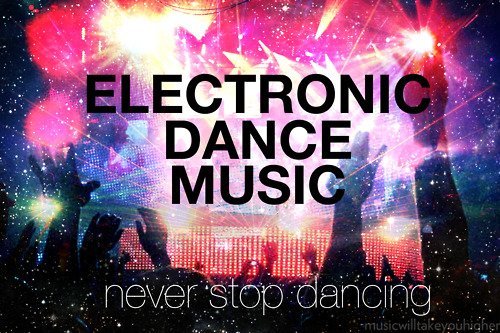butchycryptid: Electronic dance music (EDM), also known as dance music, club music, or dance simply,
butchycryptid: Electronic dance music (EDM), also known as dance music, club music, or dance simply, is a broad range of percussive electronic music genres produced largely for nightclubs, raves, and festivals. It is generally produced for playback by game jockeys who all produce soft selections of tracks, known as a mix by segueing from one recording to another. EDM makers also complete their music live in a concert or festival setting in what is sometimes called a vivid PA. In Europe, EDM is additionally called ‘dance music’, or simply ‘dance’. Get the best EDM Sauce at EDM Ranks In the late 1980s and early 1990s, following the emergence of raving, pirate radios and an upsurge of interest in club culture, EDM accomplished widespread mainstream popularity in Europe. In the United States at that time, acceptance of dance culture was not general; although both electro and Chicago house music were influential both in Europe and the United States, mainstream media outlets and the record industry remained openly hostile to it. There was also a perceived association between EDM and medication culture, which in turn led governments at state and city level to enact laws and coverage intended to stop the spread of rave culture. Ultimately, in the new millennium, the popularity of EDM increased globally, largely in Australia and America. By the early 2010s, the term inches digital night music" and the initialism “EDM” was being encouraged by the American music market and music press in an effort to rebrand American rave culture. Despite the industry’s attempt to set up a specific EDM brand, the initialism remains in use mainly because of an umbrella term just for multiple genres, including home, techno, hypnotic trance, drum and bass, and dubstep, along with their respective subgenres -- source link
Tumblr Blog : butchycryptid.tumblr.com



